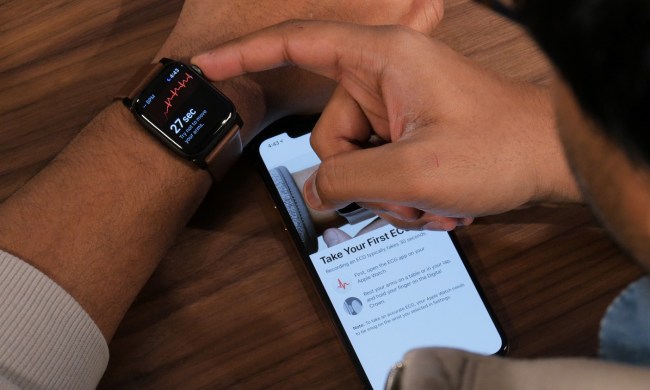
That’s the idea behind a new health tracker from a company called Awake Labs, which has just launched an Indiegogo campaign for the Reveal — a fitness tracker that’s aimed squarely at helping kids on the autism spectrum.
So how does the Reveal help these kids? Reveal essentially measures the wearer’s body’s response to anxiety, helping understand the behavior patterns that take place before a “behavior meltdown.” It means that the tracker will be able to detect when the wearer is going to have a behavior breakdown before it even occurs, allowing a caretaker or the wearer themselves to ease the situation before it gets out of control. This prevents breakdowns, but it also could increase the independence of the wearer.

There are two parts to the system: software and hardware. The hardware includes a heart rate sensor, a skin conductivity sensor (which measures sweat), and a temperature sensor. The software, however, turns that data into quick snapshots of current anxiety, graphs that show the changes over time, and a record of high-anxiety events, helping to identify patterns.
According to the autism society, one in 68 people in the United States are born with some level of autism. While Awake Labs admits autism is unique to each individual, many people with autism have sensory and environmental triggers that can cause a rise in anxiety levels, something that could eventually lead to a meltdown. These meltdowns can be both emotionally draining and even physically dangerous for the person with autism and for others around them.

Reveal could take a lot of guesswork out of taking care of someone with autism — often parents and caretakers have to guess what triggers meltdowns, and it’s often difficult to do so.
Reveal is currently gathering funding via Indiegogo, and the device itself costs 350 Canadian dollars, or around $267 in the U.S. However you can currently get it for CA$290 ($222) as an early bird special.



